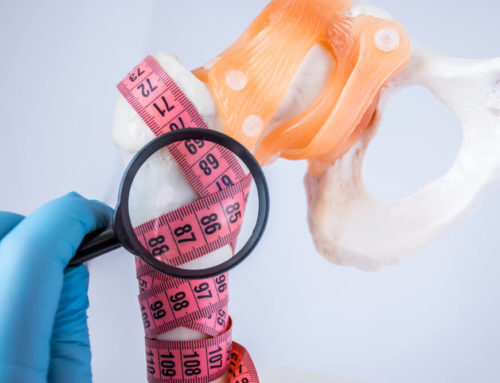A healthy and safe pregnancy starts considerably before you actually get pregnant. Proper preparation and preconception care are essential if you want to plan for a stress-free and healthy pregnancy. That said, preconception counseling is a go-to practice for many parents-to-be who wish to lower as many risks as possible once finally expecting. We’ll now further delve into the ins and outs of prenatal counseling so that you know what to expect.
What Is Preconception Care?
When they’re in their reproductive years, the health of both men and women is often referred to as their preconception health. This particular type of healthcare is focused on family health history, overall health, potential risk factors that could affect conception and pregnancy, as well as their lifestyle and habits.
Preconception healthcare is rather important for anyone who wishes to prepare their body for a healthy pregnancy and boost fertility, regardless of when exactly they’re planning to conceive. This is because most women don’t realize that they’re pregnant during the first couple of weeks after conception; however, this period is especially important for the baby’s proper development. By visiting a preconception specialist, you can ensure that your baby is safe from the earliest pregnancy stage.
There are many benefits to having prenatal counseling. For instance, this practice can significantly reduce the risk of premature delivery and newborn’s low birth weight and generally improve birth outcomes. Of course, when you get a personalized preconception health plan after the appointment, you can ensure that your body is ready to carry a healthy and safe pregnancy. Counseling is also essential for pinpointing potential risk factors and securing timely intervention if needed. What’s more, during these appointments, men can also better understand how to improve their own health and provide adequate support to their partner.
Preconception Counseling Health Discussion

Your preconception care should start at least three months before you actively start trying to conceive. During the pre-pregnancy checkup, you can expect your doctor to discuss your health thoroughly. That said, the doctor will ask detailed questions about your family health history, your own medical history in general, your OBGYN history, as well as your lifestyle habits and vaccinations.
Family Health History
Prenatal counseling is not only reserved for future mothers. When it comes to family health history, the doctor will need to question both parents. After all, certain conditions, mutations, and disorders can be passed down to a child from both the female and male sides. By collecting this info during the pre-pregnancy checkup, the doctor will be able to conclude whether there will be some additional tests necessary. For instance, you can expect questions related to the following:
- Diabetes and hypertension
- Deafness and blindness
- Birth defects and ethnic-related illnesses
- Mental issues
- Twins or multiples
Your General Medical History
Of course, once they get enough information about your and your partner’s family health history, the doctor will then focus the preconception counseling on your own medical history in general. This part of preconception in pregnancy questioning will probably revolve around:
- Past hospitalizations, surgeries, and transfusions
- Past and current medical conditions
- Potential allergies
- The meds you might be taking at that moment
Your OBGYN History
After they move on from general medical history, the doctor will proceed to discuss your OBGYN history. This is a very important part of preconception care since certain vaginal infections and STDs could lower the woman’s ability to get pregnant. It’s also possible for your doctor to request blood tests and cervical screenings just to make sure that there are no present infections. You can expect questions related to the following matters:
- History of vaginal infections and STDs
- Use of contraception
- Menstrual history and previous pregnancies
- Potential uterine abnormalities
- History of Pap smears
Lifestyle and Habits
Controlled preconception in pregnancy also relies heavily on your habits and lifestyle. Obviously, practicing healthy lifestyle habits is crucial for a healthy pregnancy. This includes following a balanced diet, engaging in regular physical activity, removing any toxins from your personal surroundings, as well as quitting smoking and drugs.
Vaccinations
In some cases, during prenatal counseling, the doctor will proceed to give you some extra vaccines. Since certain vaccines require some time to pass before conceiving, it’s important to provide your doctor with your vaccination records.
What Happens During Pre-Pregnancy Checkup?
Preconception counseling appointment usually involves doing several different tests, namely a physical exam and lab tests.
During the physical exam for preconception in pregnancy, your doctor will inspect the following:
- Lungs, heart, thyroid, breasts, and abdomen
- Pelvic health
- Blood pressure
- Weight
When it comes to lab tests that screen for several conditions and diseases, you may have to do the following:
- A Pap smear
- Complete blood count
- Testing for hepatitis and rubella
- Testing for HIV
- Diabetes screening
- Thyroid issues testing
It’s not uncommon for your doctor to suggest the best plan to keep track of your menstrual cycle so that you know when your ovulation begins each month. Before you even start trying to conceive, you will probably be instructed to take 400 to 800 mcg of folic acid. The doctor might suggest that your partner proceeds with genetic testing as well.
After Preconception Counseling

Once you complete your preconception counseling, you can expect to get some recommendations from your doctor, both in terms of healthcare and lifestyle. For instance, you might have to:
- Quit smoking and drinking
- Lose some weight
- Stop taking certain meds
- Get additional vaccines
- Start taking necessary vitamins and supplements
- Manage stress better
- Visit other medical specialists in regards to certain health issues
Questions to Ask Your Doctor
The doctor will have many questions for you, but remember to ask the questions about matters that interest you yourself. Some of the example questions may include:
- When to stop birth control?
- How long after quitting birth control is it possible to conceive?
- Can current medical conditions affect pregnancy and fertility?
- What to do about specific prescription meds that are necessary to take?
- Is it necessary to get genetic counseling?
- What are the best prenatal vitamins and supplements?
These are just some of the possible questions that you could ask so that you have a general idea and freely prepare your own set of questions before the scheduled preconception appointment. It’s important that you leave this checkup feeling confident about what you should and should not do and what to expect in general.
While planning pregnancy is definitely an exciting time, it can also be stressful and overwhelming. This is why preconception counseling is always a recommended practice for all women and their partners who wish to remain healthy and also bring a healthy baby into the world. If you wish to schedule a preconception appointment or have any other gynecological matters that you want to discuss and address, don’t hesitate to reach out to the top gynecology specialist in Margate, Florida, at Fern TaiSenChoy-Bent M.D. LLC. We offer expert and professional services for all your gynecological needs.










